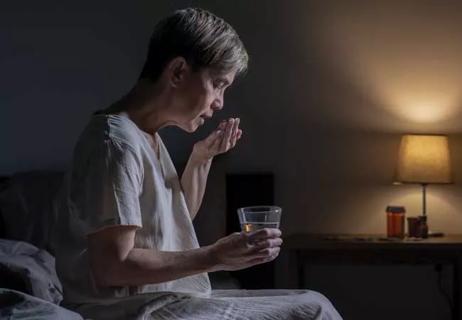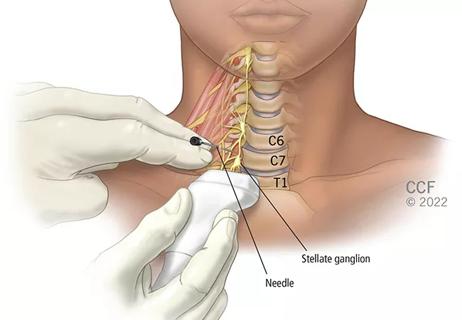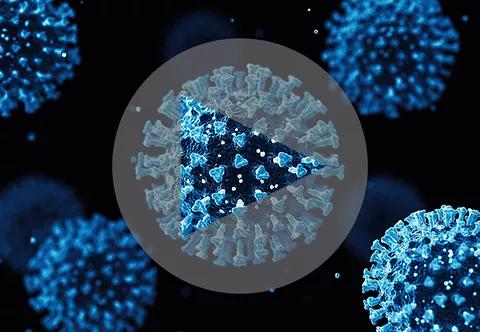Will enable patients with long COVID to enroll in national clinical trials

According to the U.S. Centers for Disease Control & Prevention, 18.8 million adults in the United States are suffering from post-acute sequelae of SARS-CoV-2 infection (PASC), commonly called long COVID. These individuals continue to experience a wide range of symptoms for 28 days or longer after testing positive for the virus.
Advertisement
Cleveland Clinic is a non-profit academic medical center. Advertising on our site helps support our mission. We do not endorse non-Cleveland Clinic products or services. Policy
To date, no effective treatments for long COVID have been identified, but specific therapies have been pinpointed as having potential. When the National Institutes of Health (NIH) begins conducting clinical trials on these treatments, Cleveland Clinic is one of the sites where patients can enroll.
“We are excited to participate in this national consortium,” says Cleveland Clinic infectious disease specialist Kristin Englund, MD. “It has been hard, because we have only limited treatments to offer these patients. At least now we can enroll them in trials of potential treatments.”
The first NIH clinical trial will evaluate whether paxlovid, an antiviral medication used in the acute treatment of COVID, is effective in long COVID. “The hypothesis is that long COVID is caused by a small amount of persisting virus that is causing an ongoing inflammatory response,” says Dr. Englund.
Although this trial was scheduled to get underway in January, the opening was delayed due to the logistics of coordinating multiple sites. Enrollment is now expected to begin within three months.
Other clinical trials focusing on treatments for the underlying causes of fatigue and sleep disorders, two of the most common symptoms of long COVID, also will follow this year.
Since February 10, 2021, Cleveland Clinic has seen more than 2,500 patients with long COVID in their reCOVer Clinic.
Dr. Englund founded the clinic in hopes of helping her patients. “Long COVID patients initially came to infectious disease thinking they had a persistent infection—and they may be right. However, we had no way to treat these patients,” she says.
Advertisement
She recruited colleagues in 18 specialties who were equally passionate about clinically addressing long COVID symptoms. “At the same time, our research teams are trying to understand the pathophysiology of long COVID, with the goal of finding the specific inflammatory marker or area where the virus persists,” says Dr. Englund.
Patients are followed closely to see how they are progressing.
The differences in how patients present with long COVID mean that it is difficult to determine who will develop long COVID and what symptoms they will have.
“Most patients improve by one year, but some courses are so debilitating that the patient cannot return to work or daily functioning,” says Dr. Englund.
Severity of illness does not correlate with the development of long COVID. PASC is primarily seen in patients who had mild COVID and were never hospitalized but subsequently develop persistent symptoms or new symptoms over a 28-days period.
These symptoms can vary widely. Overall fatigue, attention and cognitive deficits (“brain fog”) and sleep disorders are the most common. However, because COVID-19 affects all organ systems in the body, more than 200 distinct symptoms of long COVID have been identified.
“With so many symptoms, there’s no single test that can be used to confirm long COVID,” says Dr. Englund.
The reCOVer Clinic is open five days a week at Cleveland Clinic’s Independence Family Center and will be expanding to other locations.
Until now, participation has been limited to established Cleveland Clinic patients ages 18 and older. Recently, staffing was ramped up, so that any adult patient with documentation of COVID-19 infection who is struggling with long COVID symptoms can be seen.
Advertisement
Referrals to Cleveland Clinic specialists are determined by the patient’s specific symptoms. Several specialists affiliated with the reCOVer Clinic have become nationally recognized experts in long COVID. This lends hope that answers for patients struggling with symptomatology will soon be forthcoming.
Until it does, Cleveland Clinic offers alternative approaches designed to help patients cope with long COVID, including advice on nutrition, exercise, sleep and handling depression.
“We appreciate what they are going through,” says Dr. Englund. “We want to open our doors to as many people as possible and help them move forward.”
Advertisement
Advertisement

Dynamic modeling improves the accuracy of outcome predictions for ICU patients

A review of IDSA and NIH guidelines

Study sheds light on how clinicians addressed their patients’ pain and insomnia during the pandemic

Patients report improved sense of smell and taste

Clinicians who are accustomed to uncertainty can do well by patients

Unique skin changes can occur after infection or vaccine

Cleveland Clinic analysis suggests that obtaining care for the virus might reveal a previously undiagnosed condition

Team collaborates to explore effects of genetic mutations to proteins OAS and RNase L